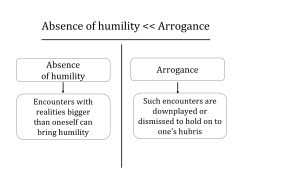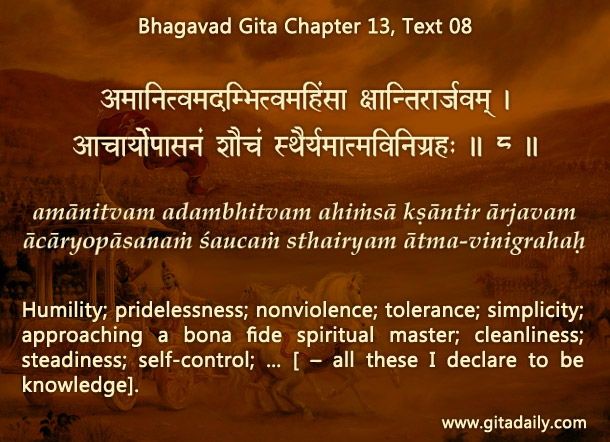
The Mahabharata describes how Duryodhana had lived lifelong with habitual hubris, neglecting or rejecting the counsel of wise elders, and choosing to pursue his own schemes, no matter how immoral, ill-advised or ill-fated.
Just before the Kurukshetra war, when Krishna came with a most accommodating peace proposal that won over several of Duryodhana’s allies, Duryodhana unleashed his devious design to arrest Krishna. However, that design was totally thwarted when Krishna expanded to cosmic proportions and displayed his vishva-rupa (universal form). Stunned, Duryodhana froze — but only temporarily. As soon as Krishna departed, Duryodhana returned to his default defiance, belittling the universal form as just a magic trick. Even after seeing what should have been profoundly, transformatively humbling, he refused to be humbled. That is arrogance: not just an absence of humility, but a rabid resistance to humility.
How can we know whether we merely lack humility or have arrogance? By analyzing how we respond to encounters with realities far bigger than ourselves. Even if we don’t get to see Krishna’s universal form, we can see, say, the majesty of nature in a stupendous mountain peak or the might of nature in a tornado. Such experiences can fill our mind by either aweing it or alarming it. Either way, these experiences can infuse us with a sense of humility even if we are not normally humble. If, however, we downplay or dismiss these experiences as mere blips on the radar of our consciousness, we are probably afflicted with arrogance.
Significantly, experiences of bigger realities can not just stimulate our mind; they can also illuminate our intelligence — especially if we are guided by Gita wisdom. The Bhagavad-gita explains that everything attractive manifests a spark of Krishna’s supreme splendor (10.41). If we let such experiences prompt our consciousness to contemplate the Divine, we will be enriched with an enduring humility that is based not just on the mind’s emotion, but also the intelligence’s reason.
One-sentence summary:
Arrogance is not just the absence of humility; it is the stubborn refusal to be humbled by things that should be humbling.
Think it over:
- How is Duryodhana’s arrogance seen in his interaction with Krishna?
- Has any experience infused you with a sense of humility?
- How can you connect that experience with Krishna?
***
13.08: Humility; pridelessness; nonviolence; tolerance; simplicity; approaching a bona fide spiritual master; cleanliness; steadiness; self-control; … [ – all these I declare to be knowledge]
To know more about this verse, please click on the image


Incredibly beautiful uplifting and profound thought. To be practised daily. Hourly.